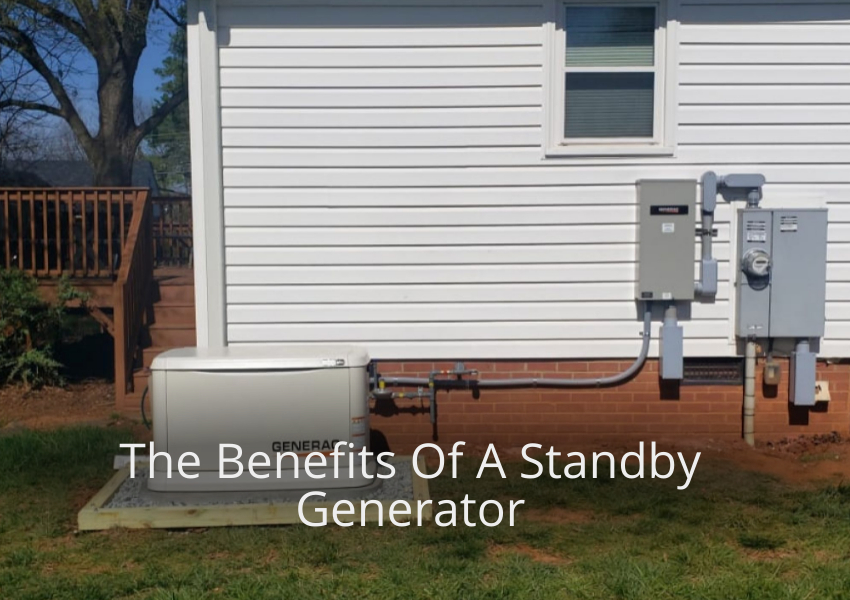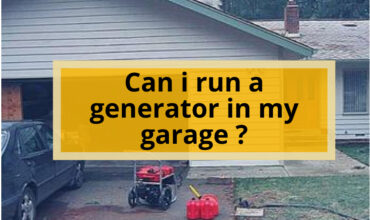Power outages can be a frustrating and stressful experience, particularly when they occur frequently due to weather conditions. For homeowners in New England, having a reliable source of backup power during outages is crucial.
One solution to consider is investing in a generator, but deciding between a portable or standby generator can be challenging. This article will explore the benefits of a standby generator and why it may be the best option for homeowners.
From convenience to power output, there are several factors to consider when selecting a generator, and we will cover them all to help you make an informed decision. By the end of this article, you will have a thorough understanding of the advantages of a standby generator and how it can provide peace of mind during power outages.

Considerations for Power Outages
In the midst of New England’s frequent power outages, homeowners must carefully consider their personal needs and the devices they wish to power when deciding between the convenience of a standby generator and the portability of a portable one.
Personal needs are an important consideration when it comes to selecting the right generator. If you live in a region that experiences frequent power outages, you will need a generator that can run for long periods of time. You may also need to power specific devices such as medical equipment, refrigerators or heating systems that are essential to your daily life.
Size requirements are another important consideration when deciding on the type of generator to purchase. The size of your generator will depend on the devices you need to power during an outage. If you have a large home with many appliances, you will need a generator with a higher wattage output. Standby generators are typically more powerful than portable ones, making them a better option for larger homes or properties. On the other hand, portable generators are a good option for smaller homes or those who need a generator that can be easily transported.
Also read : The Safety of Standby Generators
Types of Generators
There are two main types of generators available for homeowners to choose from: portable and standby. While portable generators are less expensive and can be moved around, they are not recommended for long-term use.
Standby generators, on the other hand, are installed permanently outside the home and turn on automatically in the event of a power outage. They are more powerful and convenient, and can be monitored remotely for added peace of mind.
When considering which type of generator to purchase, it is important to choose the right size for your home. This will depend on the devices you want to power during an outage. Standby generators come in various sizes and can power everything from your refrigerator and lights to your entire house.
It is recommended to consult with a professional when determining the size of generator needed for your home. While the cost of a standby generator is higher than a portable one, the benefits of having a reliable power source during an outage may outweigh the initial investment.
also read : Stay Safe: Portable Generator Grounding Guidelines
Advantages of Standby Generators
The advantages of having a permanent, automatic power source during an outage are numerous and should be carefully considered before purchasing a backup power generator for your home. Standby generators are an excellent choice for homeowners who want a reliable and convenient source of backup power. These generators are permanently installed outside the home and are connected to the electrical system, allowing them to turn on automatically when the power goes out.
One of the main advantages of standby generators is their convenience. Unlike portable generators, which must be manually started and refueled, standby generators turn on automatically and can be monitored remotely. This means that homeowners do not need to be present to start the generator, making them ideal for those who travel frequently or are away from home for extended periods. Additionally, standby generators are more powerful than portable generators and can provide enough power to run all the electrical devices in the home. While the installation process and maintenance requirements of standby generators may be more involved than those of portable generators, the benefits of having a reliable and convenient source of backup power make them a worthwhile investment for many homeowners.
Also read : Do I Need a Transfer Switch for My Generator?
| Advantages of Standby Generators |
|---|
| 1. Provides permanent, automatic power source |
| 2. More convenient than portable generators |
| 3. Can be monitored remotely |
| 4. More powerful than portable generators |
| 5. Ideal for those who travel frequently or are away from home |
Furthermore, standby generators require little maintenance, making them a low-maintenance solution for homeowners who want to ensure that they have a reliable source of backup power in the event of an outage. Most standby generators have self-diagnostic systems that detect potential problems before they become serious, making it easier for homeowners to identify and fix issues quickly. Additionally, standby generators are typically installed by professionals, ensuring that they are installed correctly and in compliance with local building codes. While the initial cost of a standby generator may be higher than that of a portable generator, the long-term benefits of having a reliable and convenient source of backup power make them a worthwhile investment for many homeowners.
Frequently Asked Questions
How much does a standby generator typically cost?
The cost of standby generator installation, including unit and labor, typically ranges from ,000 to ,000. Factors affecting cost include power outage coverage needed, generator size, and local installation fees.
What kind of maintenance is required for a standby generator?
Generator upkeep is essential for ensuring reliable performance and longevity of a standby generator. A maintenance schedule should be followed to check the oil level, battery, spark plugs, air filter, and coolant. Professional inspection and servicing are recommended annually.
Can a standby generator be used for an entire house?
Standby generators can power an entire house, but installation requirements and fuel options must be considered. A licensed electrician will need to install the generator and connect it to a fuel source such as natural gas or propane.
How long does a standby generator typically last?
The average lifespan of a standby generator is around 20-30 years with proper maintenance, and most manufacturers offer warranty coverage for a certain period. A maintenance schedule and troubleshooting tips are provided to ensure longevity and reliability.
Is it possible to finance a standby generator purchase?
Financing options for standby generators are available through various companies, with credit requirements varying depending on the lender. It is recommended to research and compare options to find the best fit for individual financial needs.






